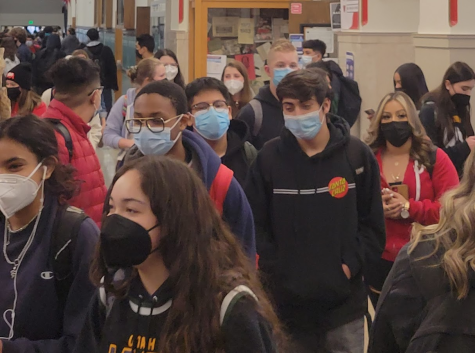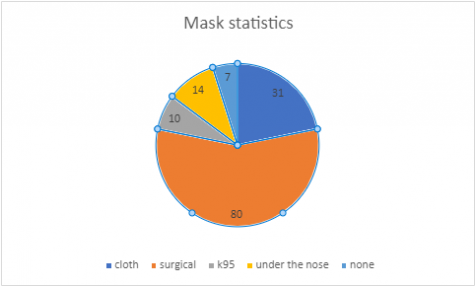How Will President-Elect Biden Affect the American Economy?
December 8, 2020
Election day has traditionally been a day in which people rush to vote, friends and family gather late at night in front of the TV, and people from opposing parties fill the streets to either celebrate victory or to protest the results. However, this year has been one of which we have never lived through – we are living in the midst of a global pandemic, a financial crisis, a racial and social revolution, and the presidential elections all at once. And with all the odds placed against the smooth results of the elections, people embraced a long and tiring election process, and while it took a few days for the Associated Press to declare a winner, it happened a lot smoother than predicted. However, with the possibility of Trump staying in the White House for 4 more years vanishing, that brings up the all too common question about the economy.
The economy has always been a hot topic of discussion in presidential elections, and this year has been no different. The unemployment rate reached around 14% in April, the worst rate on record, according to the US Bureau of Labor Statistics, within a span of fewer than three months. And while that percentage has dropped to around 6.9% from the latest report for November, that is still nearly double the amount that there was at the beginning of Q1 of 2020. So with the recovering economy and the government stalling key stimulus bills for potential political gain, people wanted to see a change in the handling of the COVID recession.
With the victory of President-Elect Joe Biden and Vice President-Elect Kamala Harris, we can start to speculate how the economy will react to their policies. While Joe Biden has made it clear that a cure for COVID-19 will be his top priority in January, it is still up to debate how he will try to remedy the state of the economy. While on the campaign trail, he made it clear that he’d push the US and consequently the economy towards a cleaner and greener path, a path that reduces if not eliminates coal, fracking, and reduces the reliance on crude oil, all of which have been proven to contribute significantly to the pollution and contamination of the environment. If the government pushes more investments towards the renewable market, then a boom in the renewable energy sector will subsequently create hundreds of thousands of jobs and bring billions of dollars into the rising market as well as the reduction of the traditional fossil fuels sector which has been fighting to maintain its dominance and saw a boom in business under the Trump administration which has focused on bringing back traditional energy-related jobs back with tax breaks and incentives.
The US has had a complicated relationship with China and the Chinese Communist Party (CCP) for years, however, a transition towards other nations for the production of cheap and mass quantity products may change ever quicker due to Biden’s views on the Chinese government and the economic effects on the US. Biden has publicly expressed his distaste with President Trump’s trade deals with China and sees them as the culprits for the decline of the manufacturing sector. With a further pushback from the Chinese government not willing cooperate, foreign investors and businesses could possibly see the the mass exodus of American companies back into the US where Intellectual Property (IP) laws are enforced or to other developing nations such as Vietnam and India, two nations that offer protection for foreign IP and a more competitive labor force. Favor for these nations may grow due to the Biden administration and ever-souring ties with the CCP.
As millions of Americans continue to be be unemployed, Congress continues stalling the second stimulus bill, job growth continues to decline from summer highs, and the threat of a second round of lockdowns loom, the need for an administration to help the US towards the path of a s
sustainable and fast recovery is needed more than ever.


